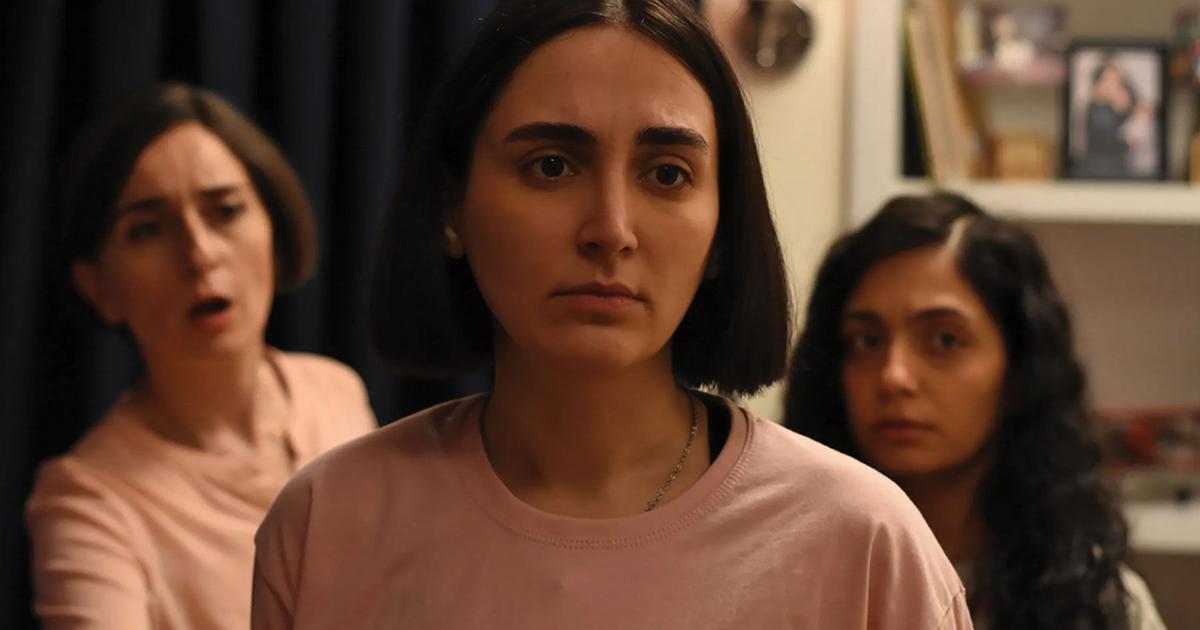Director Mohammad Rasoulof has had a lot of conflict with the Islamic Republic government of his home country, Iran. In 2019 Rasoulof was sentenced to a year in prison for his 2017 film A Man of Integrity, which won Cannes’ Un Certain Regard award. He was given another one-year sentence after his 2020 film There Is No Evil, which won Berlinale Film Festival’s Golden Bear. Both times he was charged with producing anti-government propaganda. During production of The Seed of the Sacred Fig, Rasoulof worked in secret. Now facing an eight-year prison sentence, Rasoulof opted to leave Iran on foot through the mountains, eventually seeking asylum in Germany before arriving in Cannes for Sacred Fig’s premiere.
The Seed of the Sacred Fig
PG-13, 168 minutes; in Persian with English subtitles
Opening Friday, Feb. 7, at the Belcourt and AMC Thoroughbred 20
The film centers on Iman (Missagh Zareh), who was recently promoted to an investigating judge position in Iran’s Islamic Revolutionary Court. His predecessor refused to sign a death sentence — which becomes Iman’s first assignment in his new position. His wife Najmeh (Soheila Golestani) is helping their daughters Sana (Setareh Maleki) and Rezvan (Mahsa Rostami) prepare for school when protests land over the death of Jina “Mahsa” Amini, and the family begins to clash over who’s in the wrong.
Amini was a real-world victim of Iran’s religious morality police, taken into custody for not wearing a hijab in 2022. According to eyewitness accounts, the 22-year-old Kurdish woman was beaten by police until her eventual death due to cerebral hemorrhage. The outrage surrounding Amini’s death led to massive protests in Iran, resulting in clashes between Iranian civilians and government authorities and the deaths of more than 500 people, with hundreds more injured. This is the boiling point at which the film is set, and The Seed of the Sacred Fig uses Instagram Reels — social media posts made in opposition of official government reports on the protests — that were taken during the real-world violence to tell its story. In the age of social media and VPNs, the flow of information has become a lot more complicated and thus harder for one entity to control. The film stands as a representation of the cracks in controlled media, not just in the content of the film, but also by virtue of the film’s very existence — The Seed of the Sacred Fig even existing is an act of protest against the regime and its attempts to control information.
Rasoulof is part of a greater movement in modern Iranian cinema. Around the same time he was arrested, fellow directors Jafar Panahi (best known for 2015’s Golden Bear-winning Taxi) and Mostafa Al-Ahmad were arrested on similar charges for their work. Iranian filmmakers living in exile include Ali Abbasi and Zar Amir Ebrahimi, who teamed up for the 2022 Cannes selection Holy Spider, and Marjane Satrapi, who documented her own experience in her graphic novel and feature-length animated film Persepolis. Together these great artists have fought the regime in their own ways, speaking up through art despite the very real threat it brings upon them.
Sacred Fig is the type of work that is monumental simply for existing — but it’s also a gripping political thriller that is approachable for general audiences and gives insight to the horror inflicted by the Iranian regime. It’s a draining yet entertaining piece that is begging to be seen, a cry for help from the Iranian people to the world.
